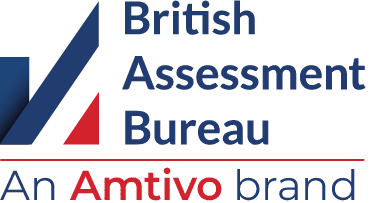So, you’ve successfully achieved ISO 27001 certification for your business, well done! What’s next?
Achieving ISO 27001 certification is just the beginning of your information security journey. Maintaining certification requires understanding key timelines, ongoing obligations, and continual improvement requirements that extend beyond your initial implementation.
From costs to the three-year recertification cycle, we’ll answer some of the most common questions ISO 27001-certified businesses ask about maintaining their certification and keeping their Information Security Management System (ISMS) effective.
How Long Does ISO 27001 Certification Last?
Your ISO 27001 certificate is valid for three years. During this time, it’s important to maintain compliance with the standard’s requirements, including conducting regular risk assessments and updating the Statement of Applicability (SoA), which outlines applicable controls and justifies any exclusions.
Before the end of this three-year period, your organisation will undergo a Recertification Audit, which reviews ongoing conformity and effectiveness, verifying continued compliance with ISO/IEC 27001 requirements.
Do I Need an ISO 27001 Consultant?
It’s not essential that you hire a consultant to help you maintain your ISO 27001 certification. However, you may find it helpful to work with one if your organisation is struggling to maintain certain areas of implementation.
We understand that ISO 27001 is one of the more challenging ISO standards to implement and maintain. While British Assessment Bureau does not provide consultancy services, we can provide you with a list of consultants who specialise in ISO/IEC 27001:2022.
Do I Need to Upgrade my Information Security Systems?
While ISO 27001 does not explicitly require organisations to upgrade their information security systems, it does require regular risk assessments and continual improvement, which may lead to system upgrades when necessary.
Through these assessments, you may identify vulnerabilities or outdated practices that require upgrades.
You may also discover that certain aspects of your security infrastructure require upgrading or replacement to improve protection against emerging threats. Upgrading systems, as needed, can help your organisation to remain resilient in the face of new challenges and maintain a robust security posture.
Aligning your security strategies with your business objectives can strengthen resilience and may support your organisation’s competitive positioning.
Staying ahead means not just reacting to threats, but anticipating them by having a dynamic and adaptable ISMS. As technology evolves, so do the methods used by cyber attackers – regular updates and improvements can help to prevent outdated practices from becoming liabilities.
Does ISO 27001 Require Regular Audits?
Yes, and this is one of the greatest strengths of ISO 27001 – the ISO methodology prioritises continual improvement, which is verified through annual surveillance audits.
Once you’ve achieved your initial certification, you’ll be visited annually by our auditor(s), to verify that your ISMS continues to meet the requirements of the standard. These audits may highlight nonconformities or areas requiring corrective action.
For larger organisations, these audits could be conducted in multiple stages to check that all units meet the requirements of the standard.
Surveillance audits sample key elements of the management system to assess continued compliance and effectiveness. Key areas reviewed include system performance, corrective actions and internal auditing processes, management reviews, customer satisfaction, and documentation updates.
Beyond maintaining compliance, regular surveillance audits provide customers with assurance that an organisation takes information security seriously and is committed to the ongoing maintenance and improvement of its ISMS. Additionally, these audits play a critical role in preparing companies for recertification every three years.
Read more about the three-year certification cycle.
What Are the Costs Associated With Maintaining ISO 27001 Certification?
Maintaining ISO 27001 certification involves various costs that organisations must consider.
These include the fees for annual surveillance audits conducted by your certification body, which ensure ongoing compliance with the standard. Additionally, there may be costs related to upgrading your information security systems based on the findings of risk assessments.
Another potential expense could be for staff training and awareness programmes to keep your team informed about the latest security practices.
While these costs are an investment in your organisation’s security infrastructure, they also contribute to minimising risks and potential financial losses from security breaches.
Learn more with our guide to how much ISO 27001 certification costs.
Can ISO 27001 Certification Help With Business Growth?
ISO 27001 certification is not only about compliance – it could also serve as a powerful tool for business growth.
By showcasing your commitment to information security, you could build trust with clients and stakeholders, potentially opening doors to new business opportunities and markets.
Additionally, certification can demonstrate your organisation’s commitment to good practice, supporting its reputation in the industry.
Emphasising your certification in marketing materials and client communications could differentiate your business from competitors and position you as a leader in security excellence.
Post-Certification Challenges
After achieving ISO 27001 certification, it’s important to dedicate time to continually evaluating and enhancing your Information Security Management System so it aligns with evolving business objectives and emerging security challenges.
Focusing on strengthening your existing ISMS and leveraging the benefits of certification can be an impactful strategy for enhancing your organisation’s competitive edge.
Regularly reviewing your ISMS can help to identify areas for improvement, helping your organisation remain resilient against new threats. Continuing to foster a culture of security awareness throughout the organisation is also important for maintaining compliance.
Organisations sometimes choose to transfer certification bodies to meet evolving needs. If you are considering this, we can provide information about transferring to British Assessment Bureau, benefiting from our UKAS accreditation and excellent customer service.
How Do I Find Out More About Maintaining ISO 27001?
For more information on maintaining your ISO 27001 certification, take our ISO 27001 implementation online training course, or take a look at our ISO 27001 compliance checklist.
British Assessment Bureau can help you with any questions about ISO 27001 certification – contact our expert team today.


